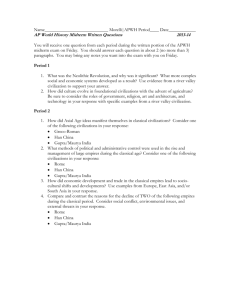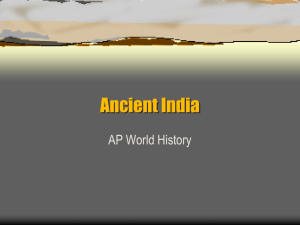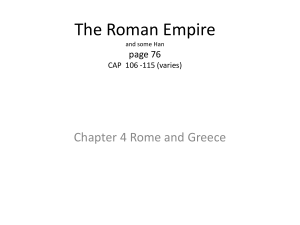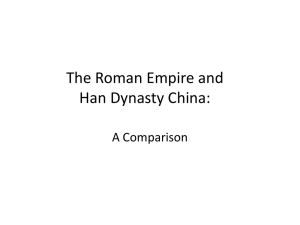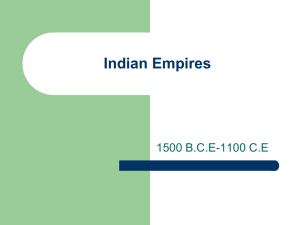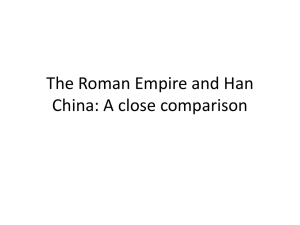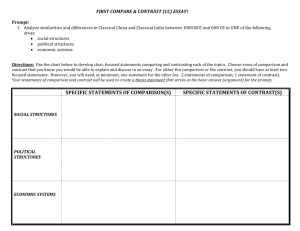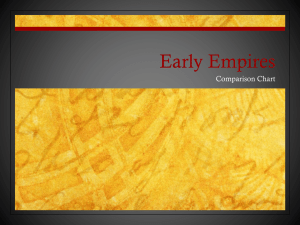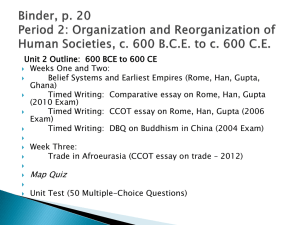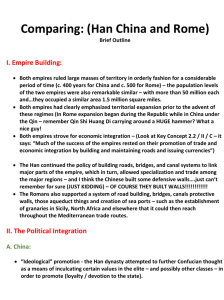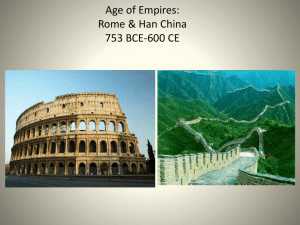Political Control of the Classical Empires
advertisement
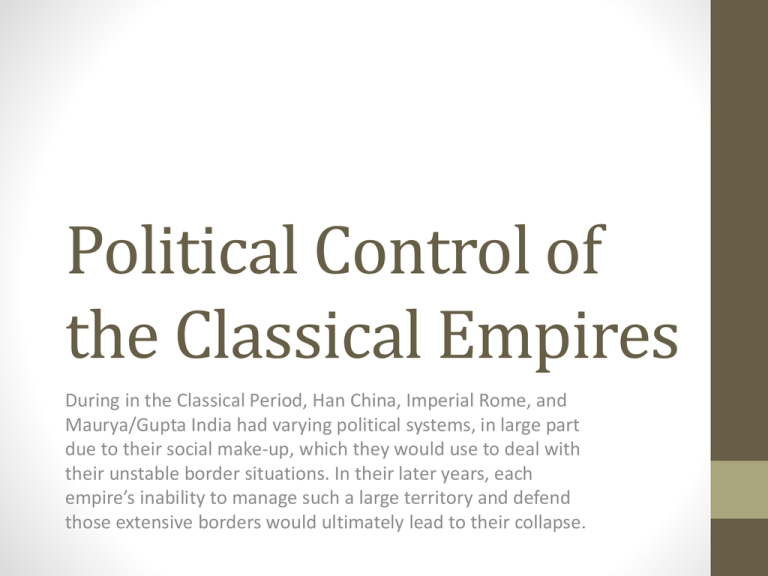
Political Control of the Classical Empires During in the Classical Period, Han China, Imperial Rome, and Maurya/Gupta India had varying political systems, in large part due to their social make-up, which they would use to deal with their unstable border situations. In their later years, each empire’s inability to manage such a large territory and defend those extensive borders would ultimately lead to their collapse. Society Affecting Politic Systems • Han China • Confucianism • Filial Piety • Created a Centralized, Close Knit Political System • Imperial Rome • Landowning Citizens and Slaves • Paterfamilias • Less Emphasis on a Collective Group • Maurya/Gupta India • Hinduism • Rigid Class Structure • Disunity Among Ruling Elite, Especially Local Princes Controlling the Borders • Han China • Mandate of Heaven, Civil Service Created Stability (Wu Ti) • Did Not Constantly Seek Expansion, Only to Maintain • Traded for Commodities it Desired, Especially Horses • Imperial Rome • Pax Romana Created Stability • At the Whims of the Emperor (Augustus, Nero, Constantine) • Focus on Expansion and Glory for Rome • Strained Resources and Manpower • Maurya/Gupta India • Expanded Under the Mauryans, Retracted With the Guptas • Crossroads of the Silk Roads (Ashoka) • Princedoms Caused Disunity Defense of the Borders • Han China • Nomadic Pressures, Used the Tribute System • Yellow Turban Rebellion of 184CE • Impressive Military Technology (Paper, Crossbow, Horse) • Imperial Rome • Nomadic Pressures, Especially From the Huns • Internal Strife, Laws Collapsing • Lack of Technology Due to Slaves (Iron) • Maurya/Gupta India • Nomadic Pressures, Huna Peoples • Use of Longbow Archers • Internal Competition for Power Conclusion • Each empire fell due to the cost of maintaining such an extensive empire, and protecting their expansive borders. • Results (Global Context): • Han China • Civil Strife for 300 Years Between North and North • Confucianism • Imperial Rome • Dark Ages for Nearly 800 Years • Twelve Tables • Maurya/Gupta India • Regional Kingdoms for 600 Years • Hinduism
